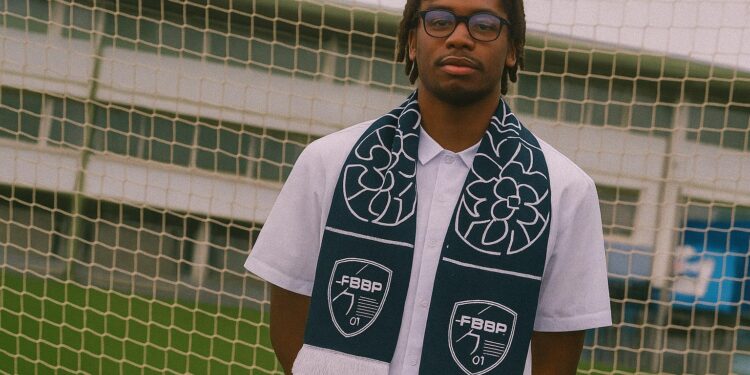Congolese Strikers and Midfielders Reshape French Lower Divisions
The summer window in France’s semi-professional tiers rarely attracts diplomatic scrutiny, yet the simultaneous arrivals of Destin Banzouzi at Bourg-Péronnas, Roger Tamba M’Pinda at La Berrichonne de Châteauroux and Christ-Vianney Goteni at Saint-Priest offer more than mere sporting intrigue. All three athletes, formed or polished in the French system but eligible for Congo-Brazzaville, represent a living bridge between Brazzaville and its sizeable diaspora in Europe. Their negotiated moves confirm the vitality of the talent pipeline that links Central Africa’s footballing nurseries to the labour market of National 1 and National 2, tiers increasingly scouted by federations seeking dual-nationals.
From Maurice Revello Showcase to National 1 Ambitions
At only twenty-one years of age, Destin Banzouzi ended last season with thirteen goals in twenty-two matches for the reserve side of US Orléans. Observers at the Maurice Revello Tournament in June – where a Congolese diaspora selection surprised several U-23 outfits with adventurous attacking play – identified the right-footed forward as a profile ready for a higher tempo (La Nouvelle République, 15 June 2023). Bourg-Péronnas, freshly reorganised after a turbulent financial cycle, secured his signature hoping to translate academy efficiency into senior productivity. For Brazzaville’s national selectors, Banzouzi’s step up to National 1 supplies a laboratory test of his adaptability to pressing schemes favoured by coach Paul Put, itself a rehearsal for the 2025 AFCON qualifiers.
Tamba M’Pinda: Juventus Graduate, Châteauroux Linchpin
If Banzouzi embodies youthful promise, Roger Tamba M’Pinda incarnates itinerant maturity. The twenty-six-year-old ambidextrous midfielder, once enrolled in Juventus U-23, has already tasted the tactical schools of Croatia’s Osijek and Cyprus’s AEL Limassol before compiling twenty-five appearances in National 1 with Annecy and Bourg-Péronnas. His one-year agreement – plus an optional season – with Châteauroux aligns with the club’s last-minute reinstatement in the third tier after Martigues’ administrative relegation (Le Berry Républicain, 28 July 2023). Châteauroux sources describe the Franco-Congolese as “a relay between defence and attack whose bi-continental experience stabilises younger teammates”. From Brazzaville’s viewpoint, his profile fits the government’s 2022 strategic note encouraging foreign-based professionals to “act as technical mentors during off-season clinics” organised in Pointe-Noire.
Goteni’s Lyonnais Stopover and the Geography of Opportunity
Christ-Vianney Goteni’s curriculum is even more peripatetic: Dijon, Ipswich, Virton, Gueugnon, Grenoble, Biesheim and Angoulême precede his current contract with Saint-Priest in National 2 Group C. The defender’s decision to settle in the Lyon metropolitan area dovetails with the region’s expanding network of Congolese community associations, many enjoying city-hall support for cultural diplomacy events (Ville de Lyon communiqué, 10 May 2023). For Saint-Priest, a club renowned for grooming multicultural talent, Goteni supplies aerial authority and francophone locker-room leadership. For Brazzaville’s embassy in Paris, his presence in Auvergne-Rhône-Alpes extends the consular footprint beyond Île-de-France, facilitating outreach programmes such as the “Passeport Sportif” initiative which eases dual-citizens’ administrative liaison with Congolese authorities.
Soft Power Threads: Football as Quiet Statecraft
Sports ministries across Central Africa frequently articulate football in terms of nation-branding, yet Congo-Brazzaville’s approach under President Denis Sassou Nguesso remains understated. Rather than flamboyant stadium projects, Brazzaville privileges targeted engagement with the diaspora, counting on athletes to function as informal ambassadors. The recent call-ups of French-based players like Guy Mbenza and Antoine Makoumbou illustrate this orientation (Jeune Afrique, 3 September 2023). By sustaining ties with Banzouzi, Tamba M’Pinda and Goteni, authorities tap into European training methodologies without provoking the budgetary strains of domestic academies. Diplomats posted in Paris observe that such micro-level connections “feed macro-level goodwill” with local governments eager to highlight integration success stories among migrant communities.
Strategic Payoff and the Road to 2026
Looking ahead, the sporting trajectories of the trio coincide with Congo-Brazzaville’s broader horizon: qualification for the expanded 2026 FIFA World Cup and consolidation of cultural diplomacy in Europe. Should Banzouzi translate his regional league scoring instinct to National 1, or should Tamba M’Pinda anchor Châteauroux’s midfield resurgence, the national team’s talent pool would deepen at limited fiscal cost. Meanwhile, Goteni’s role in Saint-Priest may appear modest on paper, yet his involvement in youth workshops scheduled for December under the aegis of Lyon’s consulate could reinforce soft-power dividends invisible in traditional box-scores. For Congolese decision-makers and the diplomats who advise them, such incremental progress underscores a pragmatic doctrine: cultivate diaspora excellence, harvest international credibility.












































